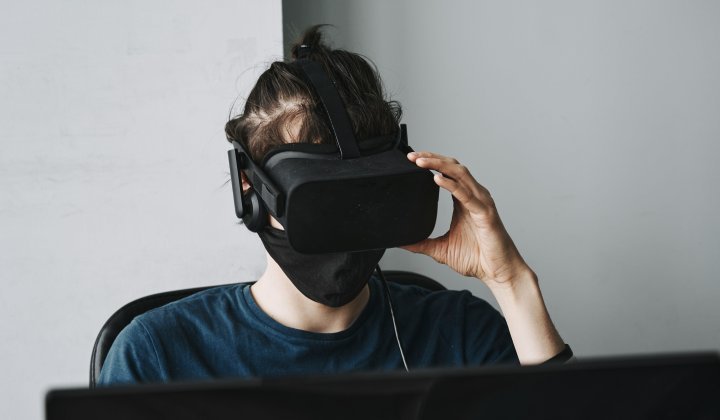In a changing world, we all need to adapt as human beings and as part of the greater social and business ecosystem.
The ‘great resignation’ unfolding in markets like the US and Europe is a testament to a worldwide cognitive rewiring around how we view work and well-being. The policy shifts in markets like Portugal, Bermuda and Georgia, which allow for easier issuance of remote working visas for digital nomads, are notable changes at a country level. These are just two shifts that were sparked by the Covid-19 pandemic. Others will follow to disrupt individuals, businesses, and countries – the key is to watch for the signs.
The macro factors
Rather than sitting on the sidelines and longing for the past as these shifts emerge, I advocate for taking an active interest in the macro factors.
Dr. Donald Sull, a global expert on strategy and execution in challenging markets, says that we all need to spend more time making sense of the world amidst the current cauldron of change. He argues, however, that many leaders aren’t comfortable with sensemaking since it requires them to leave the comfort of their limited, lived experience to think beyond their sector or business and appreciate the global picture. This requires the intellectual humility to accept that we don’t have all the answers, and the curiosity to experiment.
The sensemaking Sull talks about also requires leaders – and individuals across all levels of society – to take a more active interest in events unfolding around us. It means interrogating the implications of the new-found ‘cold war’ between China and Russia, and the West, represented by America and parts of Western Europe. It means paying attention to issues like the Russian invasion of Ukraine and considering the consequential impact on a market like South Africa in terms of fuel costs, grain imports and coal exports, as well as the ability of average citizens to pay their bills.
Macro factors matter, and right now, three shifts matter significantly since they hold huge potential for ongoing disruption:
- Political shifts, such as changing global alliances that have the potential to shift the direction of the world either positively or negatively over the next 30 years.
- Economic changes, like uneven world growth and emerging fault lines around access and inclusion for large segments of the world’s population.
- Cognitive rewiring, which is a Covid-driven change in how human beings think and do things, alongside a mass adoption of new ways of working, connecting and playing.
These macro disruptions filter down through the global system to a meso level, impacting grassroots organisations, businesses and communities. Right now, for instance, the intersection of a technological revolution, global macro changes and the change inherent in a multi-generational workforce is introducing a strange (and exciting) new way of working.
The work disruptors
Of the workplace shifts finding their place in this new reality are nine points that I believe warrant particular attention because they will alter the entire ecosystem in the long term:
- The rise of purpose-driven organisations – With more employees looking for personal meaning and younger generations fuelled by a desire to make a difference, working for organisations driven by purpose will elicit more commitment and passion for its people.
- The importance of lifelong growth – No longer can individuals get a degree (or a few) and then relax into a job for life. Instead, the rate of change will demand constant upskilling and learning, some of which can be facilitated by companies and much of which requires personal interest and commitment.
- Impacts on the future of leadership – The leadership model can, and must, change. Top-down dictates will no longer wash with a curious and demanding public, so leaders must align themselves with purpose and live this in how they lead, mentor, and advance the careers of others.
- A move beyond organisational charts – The organogram of old is dead, unable to survive the notable shifts in leadership requirements. So, businesses need to think beyond these charts and create a more fluid model.
- Rethinking the talent pipeline – The skills needs of companies are changing amidst digital shifts and the changing needs of more agile, remote-working organisations. This will affect the type of people businesses need to recruit and their talent models.
- Reimagining the office – The interplay between remote work and a physical office is touted as the ‘combo culture’. Getting the balance right will be organisationally specific, but it will require tweaks to corporate culture and employee development models in all instances.
- Careful attention to minding the gap – Combo culture corporate shifts have the potential to lift skilled knowledge workers up, but it can also sideline sections of the workforce who choose to remain remote workers (such as working mothers) as well as create cliques that close the door to diversity and inclusion.
- Greater focus on wellness – Covid-19 highlighted how healthy behaviours benefit both individuals and organisations, driving a rise in wellness programmes worldwide and demand from employees for greater wellness support. This will accelerate into the future.
- New definitions of success – For too long, the definition of corporate success has hinged on wealth accumulation, power, and prestige. However, post-Covid, human beings also define success around personal fulfilment and time spent with friends and family. Great talent will fall through the cracks if organisations fail to recognise this.
These nine points must also be read with the understanding that the composition of the new global workforce is changing as contingent workers, freelancers and gig economy operators find greater demand for their services. This fits in with the nature of an on-demand economy and business models that see the value in bringing experts in for specific projects rather than having full-time specialists available to them 24/7. This new model will require notable changes to how organisations structure themselves, their working arrangements, and policies and procedures. In addition, as employees increasingly have the option to work remotely or on a hybrid basis, this will also impact how organisations deal with training and development or seek to stimulate innovation.
This is a profound shift, with researchers projecting that the number of fully remote workers in the US will rise from 12.3% before Covid-19 to 27.7% in the next five years. Likewise, partially remote workers are projected to rise to 20.4% from 8.9%. Many sectors in South Africa mirror this transition.
In such an environment, the bold will survive by changing and innovating and seeking new opportunities. Others, however, risk falling by the wayside if they stick rigidly to the past.
The influential thinker and author, Peter Drucker, puts it beautifully: “A time of turbulence is a dangerous time, but its greatest danger is a temptation to deny reality.”
In other words, the turbulence isn’t the problem, but applying yesterday’s logic to the solution is.
The anti-disruption toolkit
We live in a frightening, headline-driven society that fuels a perception that the challenges around us are insurmountable. This doesn’t have to be the way.
For any organisation, big or small, the superpowers of the next 10 years hinge on people and people management. Since skills that cannot be automated will become increasingly valuable, evolving in step with disruption and uncertainty lies in focusing on these four areas:
- Hone your organisation’s ability to empower, attract and retain talent by becoming people-centric and attune to the mood within your business.
- Develop an appreciation for innate human agility. Humans are incredibly adaptable to change, so when you move with clarity and intent, your people will follow.
- Accept that there is no normal, new, or otherwise.
- Normalise the need for reflection time during which individuals can think, plan and rest. Support this by creating space – and organisational acceptance – for slowing down, contemplating the bigger picture, and applying creative thinking that unlocks potential opportunities.








